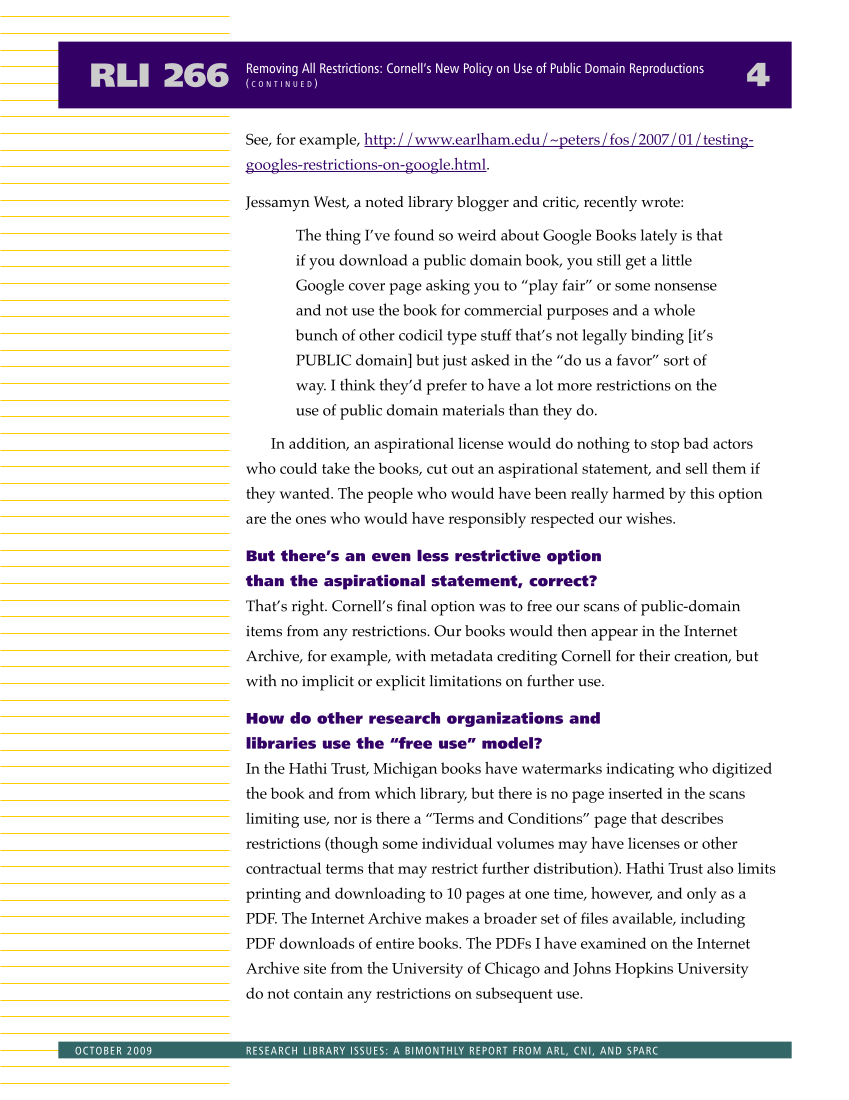See, for example, http://www.earlham.edu/~peters/fos/2007/01/testing- googles-restrictions-on-google.html. Jessamyn West, a noted library blogger and critic, recently wrote: The thing I’ve found so weird about Google Books lately is that if you download a public domain book, you still get a little Google cover page asking you to “play fair” or some nonsense and not use the book for commercial purposes and a whole bunch of other codicil type stuff that’s not legally binding [it’s PUBLIC domain] but just asked in the “do us a favor” sort of way. I think they’d prefer to have a lot more restrictions on the use of public domain materials than they do. In addition, an aspirational license would do nothing to stop bad actors who could take the books, cut out an aspirational statement, and sell them if they wanted. The people who would have been really harmed by this option are the ones who would have responsibly respected our wishes. But there’s an even less restrictive option than the aspirational statement, correct? That’s right. Cornell’s final option was to free our scans of public-domain items from any restrictions. Our books would then appear in the Internet Archive, for example, with metadata crediting Cornell for their creation, but with no implicit or explicit limitations on further use. How do other research organizations and libraries use the “free use” model? In the Hathi Trust, Michigan books have watermarks indicating who digitized the book and from which library, but there is no page inserted in the scans limiting use, nor is there a “Terms and Conditions” page that describes restrictions (though some individual volumes may have licenses or other contractual terms that may restrict further distribution). Hathi Trust also limits printing and downloading to 10 pages at one time, however, and only as a PDF. The Internet Archive makes a broader set of files available, including PDF downloads of entire books. The PDFs I have examined on the Internet Archive site from the University of Chicago and Johns Hopkins University do not contain any restrictions on subsequent use. RLI 266 4 Removing All Restrictions: Cornell’s New Policy on Use of Public Domain Reproductions ( C O N T I N U E D ) OCTOBER 2009 RESEARCH LIBRARY ISSUES: A BIMONTHLY REPORT FROM ARL, CNI, AND SPARC



























